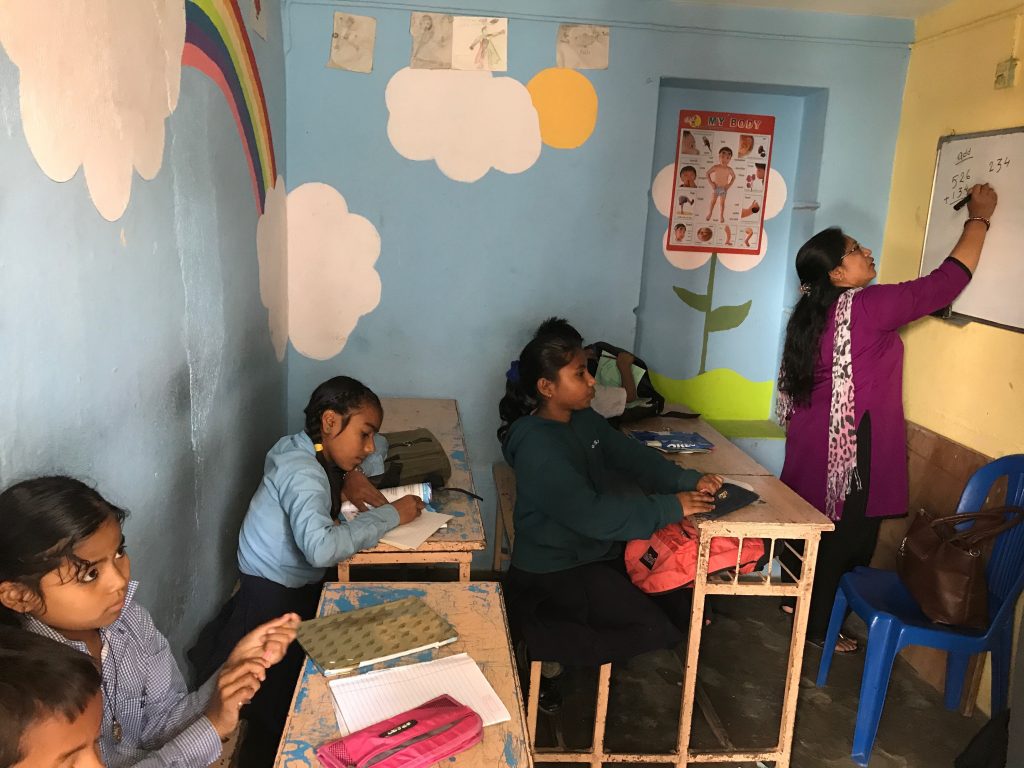Founded a little over nine years ago, Bal Sarathi started its journey to help impoverished children in the Pushupatnina area, in Kathmandu, Nepal. Its founder was searching for a way to help beggar children receive an education without the influence of their parents or adult figures they were living with.
Homeless parents in these impoverished areas intentionally keep their children and orphans they look after away from government schools to receive a higher income from begging at the world heritage site, Pushupatina. The challenge the director of Bal Sarathi faced was how to attract children to attend the school despite the resistance from the parents. Armed with small pieces of chocolate, she started convincing children to come to her school for a daily meal. Once at Bal Sarathi, she and her team provided the children with a medical check-up, clothing, haircuts, and, over time, school books and supplies to start the journey for a decent education.
Initially the group of students were only 5, but word of mouth spread quickly amongst the children and the very next day over twenty students came to the orphanage. At its peak, over 150 students were studying at the orphanage, but current numbers are around 70; all aged from 4 to 9 years old.
Bal Sarathi was met with resistance from beggar parents, as utilising children will ensure a larger financial return from residents and tourists as they visit the holy site. Some parents even went so far as to tear up the donated workbooks so that students wouldn’t be able to complete their homework and would be forced to stay and work. However, the children were motivated by food and their daily sweets, so they kept coming back.
Still faced with a problem of only motivating the children with food, Bal Sarathi had to instil a policy that if the students didn’t complete their homework, they would not be able to earn a meal. Now this, was a sustainable solution. Through the past nine years, there have been a few graduates of Bal Sarathi, moving to secondary school through donations from NGO’s. Persistence has been key for the team, and they are seeking their first students moving towards year 12 completion in a few years.
Our day began with a quick discussion with the director about Bal Sarati’s history and journey to its current position. After this we toured the rooms throughout the building seeing the seven classrooms, administration room and humble grounds. Teaching around 70 students with six different age groups is challenging and some of the classrooms have been split to give proper attention to focus on their core teaching principles of group discussion, creativity and writing. Our group of 8 broke up in teams to spend time with each of the classrooms and interact with the staff and children. We followed this by having each of the classes line up and receive a waterproof packet which included a pack of pencils, sharpener, rubber, crayons, colouring book, workbooks and a few pieces of candy. The most rewarding portion of the day, however was after serving lunch playing with the children with the new toys we brought to the orphanage.
Overall, having time with the team and seeing the smiling faces of the children was our largest reward thus far on this trip. We look forward to having more experiences with Bal Sarati on future trips back to Nepal.
School of Bal Sarathi
Written by Michael Munstock





